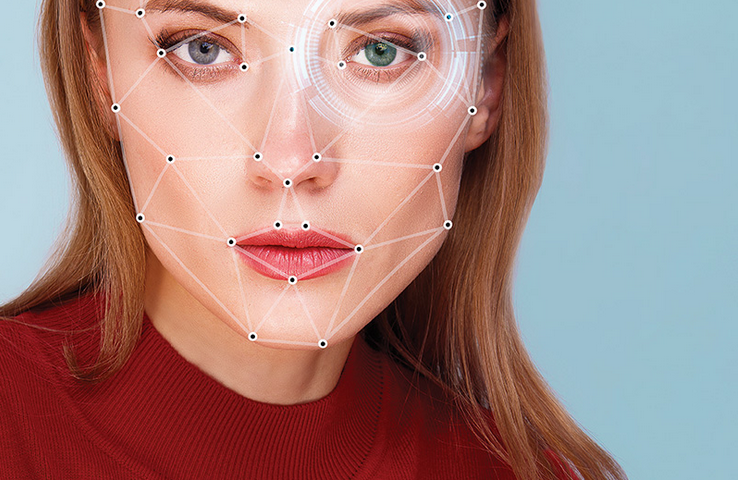Artificial intelligence, it is said, will power the fourth industrial revolution, changing the way we work, live and interact.
It is rapidly disrupting all kinds of industries, and in beauty, companies from the largest multinationals to independent start-ups are increasingly investing in AI to bring groundbreaking innovations to consumers.
Earlier this year L’Oréal snapped up AI and augmented reality (AR) beauty brand ModiFace with plans to “support the reinvention of the beauty experience”.
Coty, meanwhile, has launched an accelerator programme for AI start-ups to earn an opportunity to work with the beauty company.
And Perfect Corp has debuted its first Global AI Challenge, inviting creative innovators to develop beauty tech solutions using AI across all product categories from toothpaste to nail polish.
But what else can we expect from the beauty industry? Below are five trends that you can expect to see more from in 2018 and beyond…
- Product personalisation
Some industry players are sounding the death knell for one-size-fits-all ‘big beauty’.
The rise of the personalisation trend has projected an ideal scenario where customers are able to have their specific needs met and fulfilled with a unique and optimised formula, leaving generic off-the-shelf cosmetics behind as products of yesteryear. And in the world of AI-based beauty products, brands are already claiming this patch.
Customised hair care brand Function of Beauty says it was “arguably the first company to leverage AI in the beauty sector” when it launched over three years ago.
Prose is another brand that has gained attention for its use of AI technology to personalise shampoo and conditioner products.
- Chatbots
“Bots are the new apps,” said Microsoft CEO Satya Nadella in a keynote speech at a company conference back in 2016. “People-to-people conversations, people-to-digital assistants, people-to-bots… that’s the world you’re going to get to see in the years to come.”
The beauty industry has been quick off the mark in making this happen. Alongside Sephora, Estée Lauder and L’Oréal, other brands that have invested in beauty bots over the past two years include CoverGirl, which launched the world’s first influencer chatbot, based on TV celebrity Kalani Hilliker, back in November 2016.
Other branded chatbots include: La Mer, which offers Regimen Finder for personalised skin care routines; Madison Reed’s hair colour bot Madi; Dior’s Dior Insider chatbot which answers product questions and offers beauty advice on Messenger; and Smashbox, which in 2018 launched the first chatbot that incorporates full face augmented reality looks.
- Retail experiences
Beauty retailers are jumping on AI and AR-based technologies to create playful, immersive and personalised shopping customer experiences – and reinvent their bricks-and-mortar spaces in the process.
Virtual try-on shopping experiences went mainstream in the beauty industry in 2017, with brands and retailers from MAC to Macy’s rolling out AR magic mirrors and Perfect Corp and ModiFace establishing themselves as leading providers of AR technology.
And last month Bourjois unveiled a next-generation blended reality magic mirror at its newly relaunched boutique in Paris. The AR make-up try-on experience integrates physical products with digital content in order to make the experience feel more real. The shopper picks up a Bourjois Rouge Velvet lipstick and the colour instantly appears on their lips.
- Skin advisors
Skin analysis platforms that use artificial intelligence to assess skin and recommend products may not be about to take the job of a professional dermatologist – but they might transform the way consumers shop for skin care products.
One of the biggest developments in this area is Olay’s Skin Advisor, an AI-led skin analysis platform that was launched by the brand after its research found that consumers needed help to shop more effectively for their skin care products.
And a new wave of digital advisors could be about to join the industry and act as in-store beauty consultants too.
Finnish start-up Revieve’s Digital Beauty Advisor, which launched in 2017, provides skin care advice and recommendations after analysing 68 factors such as redness, eye bags and wrinkles via selfie analysis and running data through its AI-powered Personalization Engine.
- Voice activation
Voice-based artificial intelligence will be a game changer in beauty over the next five to ten years, according to leading industry players Coty, Estée Lauder, Perfect Corp and ModiFace.
Not only will it unlock new experiences and address shopping concerns, it could change the relationship beauty brands have with customers.
Recent innovations include Estée Lauder’s first voice activation experience, the Estée Lauder Nighttime Expert app on Google Home; and Coty’s Let’s Get Ready voice-driven personal beauty assistant with Amazon Echo.
Artificial Intelligence is being hailed as the invention that will change the world. Here Cosmetics Business reveals how it is reshaping the beauty business
This is an excerpt from Cosmetics Business AI Beauty Trend Report 2018, first published on www.cosmeticsbusiness.com
Register to attend in-cosmetics North America for an all rounded event inclusive of; networking, interacting with products and more free education >> http://northamerica.in-cosmetics.com/en/forms/Register-your-interest/

